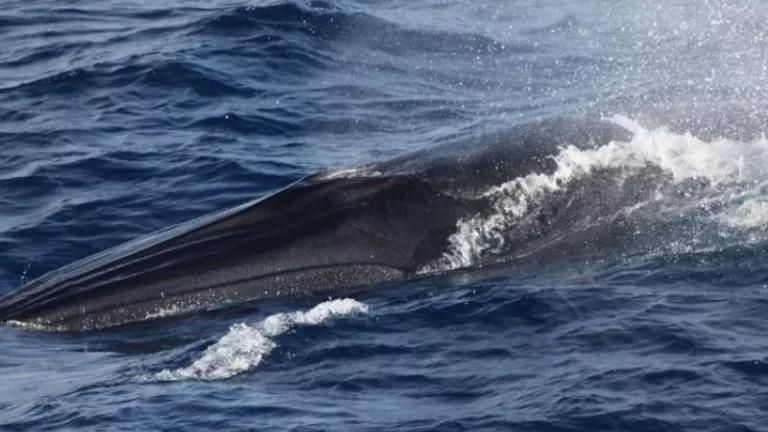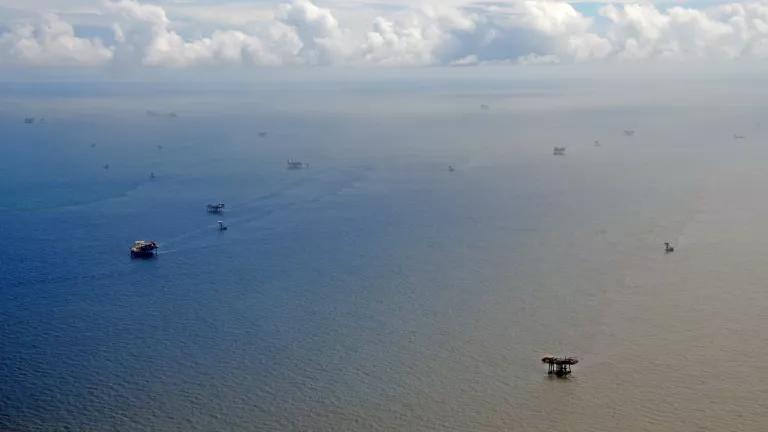This week, at Capitol Hill Ocean Week (CHOW), marine professionals, ocean enthusiasts, and government officials will gather to network, talk policy, and increase their knowledge about the state of the world’s oceans.
It’s an important opportunity to celebrate recent progress in protecting oceans, and to reaffirm U.S. commitment to a range of ocean priorities. The United States has the largest ocean area of any country—one of our greatest natural resources. How we manage these waters is important to our nation’s economy, to coastal communities that depend on the ocean for their livelihoods and way of life, to seafood eaters, and to people who love to spend time on the water or at the beach.
John Podesta, Counselor to the President, kicked off CHOW this morning noting that America is an “ocean nation and our oceans are in trouble.” He highlighted several Administration initiatives to protect our ocean wealth:
National Ocean Policy
Nearly four years ago, President Obama took an important step toward protecting our oceans now and in the future by establishing, with Executive Order 13547, our country’s first-ever National Ocean Policy (NOP). The policy is ushering in a new era of ocean stewardship by supporting federal agencies, coastal states and tribes in the enormously important work of coordination and advance planning for the use and protection of ocean resources at regional and national levels. The Northeast and Mid-Atlantic regions in particular have made great strides in this kind of coordinated planning and today Podesta committed the Administration to ensuring that their marine plans for regional ocean protection and sustainable use are finalized by the end of the Administration.
Last week we also welcomed the announcement that Beth Kerttula is the new Director of the National Ocean Council, which is charged with overseeing implementation of the NOP. She brings a wealth of experience and a deep understanding and commitment to ocean issues.
Fisheries Management
The U.S. is widely acknowledged to have some of the best fisheries management laws in the world. Our primary marine fisheries law, the Magnuson-Stevens Act, has led to concrete and far-reaching economic and conservation gains. Several requirements of the Act have been key to its success:
- science-based annual catch limits to prevent overfishing
- accountability measures to ensure that these catch limits are not exceeded
- rebuilding of depleted fish populations in as short a time as possible, not to exceed 10 years (with certain limited statutory exceptions)
We are concerned about efforts to weaken this keystone law, which would return us to the irresponsible fisheries management practices of the past—efforts outlined in NRDC Oceans Advocate Alexandra Adams’ recent blog post. Today the Administration signaled their support for the Act and we call on Congress to take steps to ensure that the gains achieved are not now eroded by roll-backs to the current law.
Ocean Acidification
Ocean acidification (OA) has had serious impacts on businesses such as shellfish farming, and ocean chemistry continues to change due to carbon pollution. Initial investments under the 2009 Federal Ocean Acidification Research and Monitoring (FOARAM) Act have allowed scientists to gain important new knowledge about ocean acidification and its effects. Podesta noted the threat that OA brings and called for new, critical investments in OA monitoring. We would like to see Congress increase funding for OA, especially for much–needed monitoring, research and mitigation activities focused on hotspots in United States' waters and around the world where communities and businesses are particularly vulnerable to changing ocean chemistry.
Marine Protected Areas and Sanctuaries
Marine protected areas are key to the resilience of ocean resources, and a bulwark in the face of increasing threats such as pollution and ocean acidification. In his State of the Union speech earlier this year the President declared the Administration’s commitment to work to protect pristine areas on public lands; today, Podesta noted the importance of using marine protected areas as tools to help protect our oceans and ensure their resilience in the face on threats like climate change.
Podesta also announced the re-establishment of the public national marine sanctuary nomination process. National marine sanctuaries have a distinct role to play as part of the nation’s commitment to keeping our ocean healthy and sustaining its many benefits for our generation and future ones. Reinvigorating the nomination process after a hiatus of nearly 20 years is a key action item to safeguard our ocean resources.
We are encouraged to see the Administration’s actions to help protect our valuable oceans, coasts, and Great Lakes.
One other arena where the U.S. can act is the Arctic. Looking ahead to the U.S. chairmanship of the Arctic Council, the U.S. should develop a bold agenda to strengthen conservation of the shared waters of the Arctic Ocean.
Not long after CHOW, these and other topics will likely receive further attention at the “Our Ocean” Conference, June 16-17, sponsored by the Department of State. The conference will bring together experts, practitioners, advocates, lawmakers, and the international ocean and foreign policy communities to chart a way forward for ocean conservation. Learn more at: http://ourocean2014.state.gov/.
This season, as families head to the beach, is a great time for our leaders to recommit to stewardship of our oceans.




